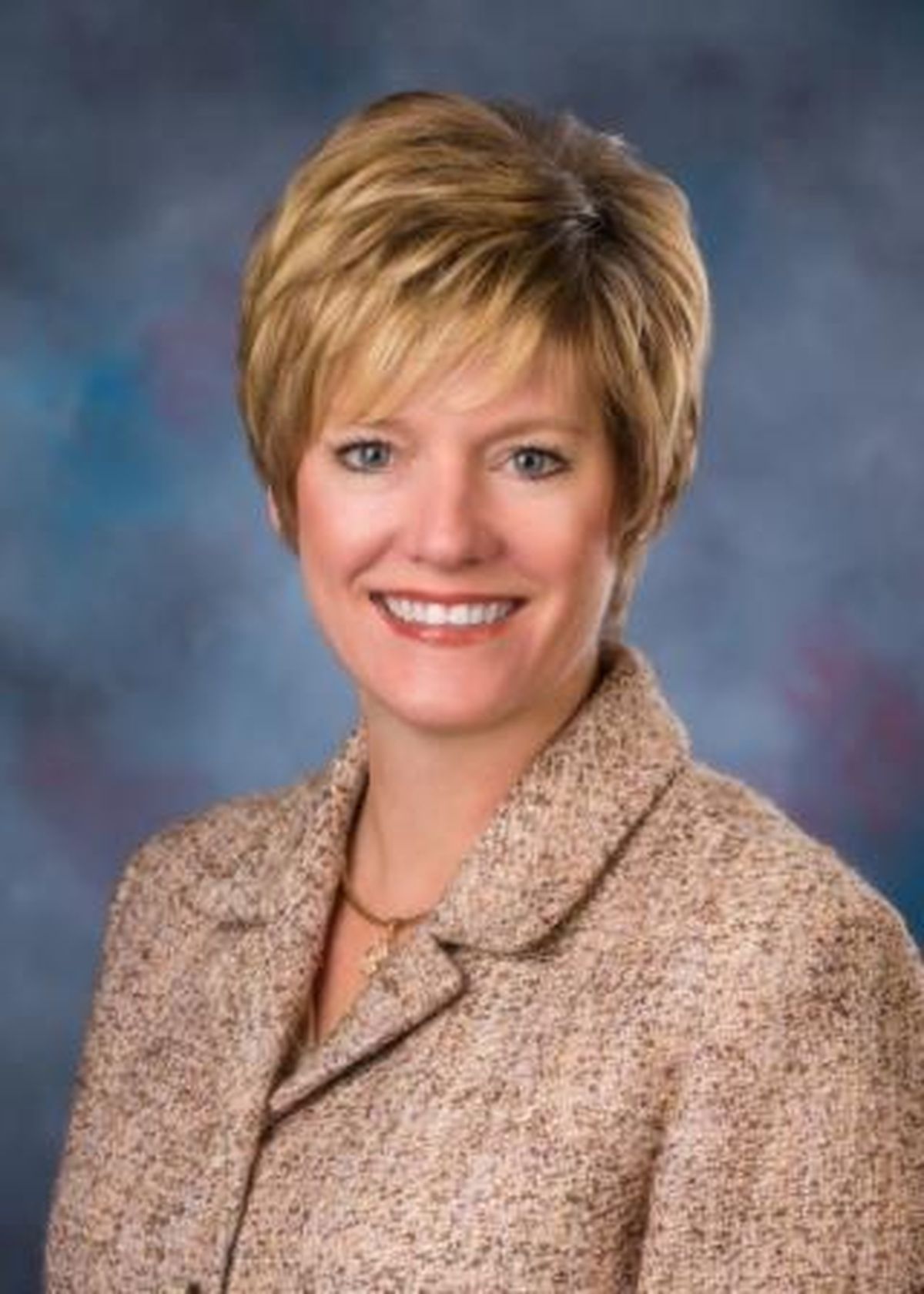This column reflects the opinion of the writer. Learn about the differences between a news story and an opinion column.
Eye on Boise: Leroy says he’s moving to the congressional district where he’s running

Rep. Christy Perry, R-Nampa, said one of the factors that prompted her to join the already crowded 1st District congressional race was that “I live in the district, which is a little bit different.”
“When I first looked at this race, I was actually quite upset that David Leroy doesn’t live in the district, and for me that was a non-starter,” Perry told Eye on Boise last week. “I didn’t think it was quite right that he should jump into the race when he doesn’t live in the district or represent really its values in the way that my husband and I really do,” having both grown up in Middleton, which is squarely in the 1st District.
Leroy’s current home in Boise is in the 2nd District; the line between the two districts cuts through Boise.
But when asked about Perry’s comments, Leroy said, “I’m just delighted to spike that allegation. I have made arrangements to lease a house within the 1st District with an option to buy it, and will be making that move, so that I intend to be voting for myself. Good try, Christy.”
Leroy said he’s leasing a home in Eagle, just west of Boise, and will be moving in in late December or early January.
Congressional candidates aren’t required by law to live in the district where they run – they just have to live in the state they represent. The U.S. Constitution, in Article I, Section 2, specifies, “No Person shall be a Representative who shall not have attained to the Age of twenty five Years, and been seven Years a Citizen of the United States, and who shall not, when elected, be an Inhabitant of that State in which he shall be chosen.”
The Washington Post reported in April that at least 22 current House members don’t live in the districts they represent. That’s 5 percent of the 435-member House. Some are longtime members who haven’t moved as district lines have shifted around them; others live just outside or near their districts.
“These district lines are relatively artificial – they move all the time,” Leroy said. “They’ll be moving again in 2020. It’s not a legal requirement, but I think it’s a political nicety that should be observed, and I intend to observe it.”
The race for the congressional seat – the one representing a district that stretches from southwestern Idaho all the way north to the Canadian border – already has drawn six Republicans and three Democrats. It’s an open seat in 2018, as current Rep. Raul Labrador is leaving it to run for governor.
In addition to Perry and Leroy, who are both Republicans, the candidates who have filed for the seat include former state Sen. Russ Fulcher, R-Meridian; current state Rep. Luke Malek, R-Coeur d’Alene; Nick Henderson of Post Falls; and Michael Snyder of Bonners Ferry, all running as Republicans; and James Vandermaas of Eagle; Michael Smith of Post Falls; and Donald Roy Miller of Meridian, all running as Democrats.
“It’s an honorable field and the voters will have plenty of choices,” Leroy said.
Kustra to retire
Boise State University President Bob Kustra has announced that he’ll retire on June 30, after leading the state’s largest public university for 15 years. “Serving as president of Boise State University has been the privilege of a lifetime,” Kustra, 74, wrote in an announcement letter. “I will be forever grateful for being able to serve during this period of incredible growth and accomplishment for the university.”
Prior to joining Boise State, Kustra served two terms as the Republican lieutenant governor of Illinois and 10 years in the Illinois Legislature, and chaired the Illinois Board of Higher Education. He also has served as president of the Midwestern Higher Education Commission and president of Eastern Kentucky University, and held faculty positions at Northwestern University, the University of Illinois-Chicago, Loyola University of Chicago and the University of Illinois-Springfield.
Boise State has grown dramatically under Kustra’s leadership, expanding doctoral research programs, establishing new STEM and high-tech degree programs, awarding significantly more degrees and building a nationally recognized athletic program. It’s also set records for research grants and university fundraising, and constructed numerous major new facilities.
BSU, in a news release, credited Kustra with spurring a “brain gain” in Idaho, as more than 80 percent of the university’s graduates stay and work in Idaho after they graduate, including 45 percent of students who arrive at BSU from out of state.
Idaho Rep. Raul Labrador denounced Kustra in August and called for him to resign, after Kustra, during his annual State of the University address, spoke about the deadly Charlottesville white nationalist rally while announcing a new human rights initiative on campus, and was less than complimentary of Labrador’s response to the rally.
Boise Mayor Dave Bieter said, “Boise State’s trajectory has been astounding – he’s accomplished much more than I could have ever anticipated. … His hard work leaves Boise State’s next president in a great position to take the university even higher.”
Hansen to lie in state
The late Idaho congressman Orval Hansen, who died Nov. 2 at the age of 91, will lie in state in the rotunda of the state Capitol on Monday from 9 a.m. to noon; his family will be on hand to greet those who come to pay their respects. Funeral services will follow at St. Michael’s Cathedral, across from the Capitol.
